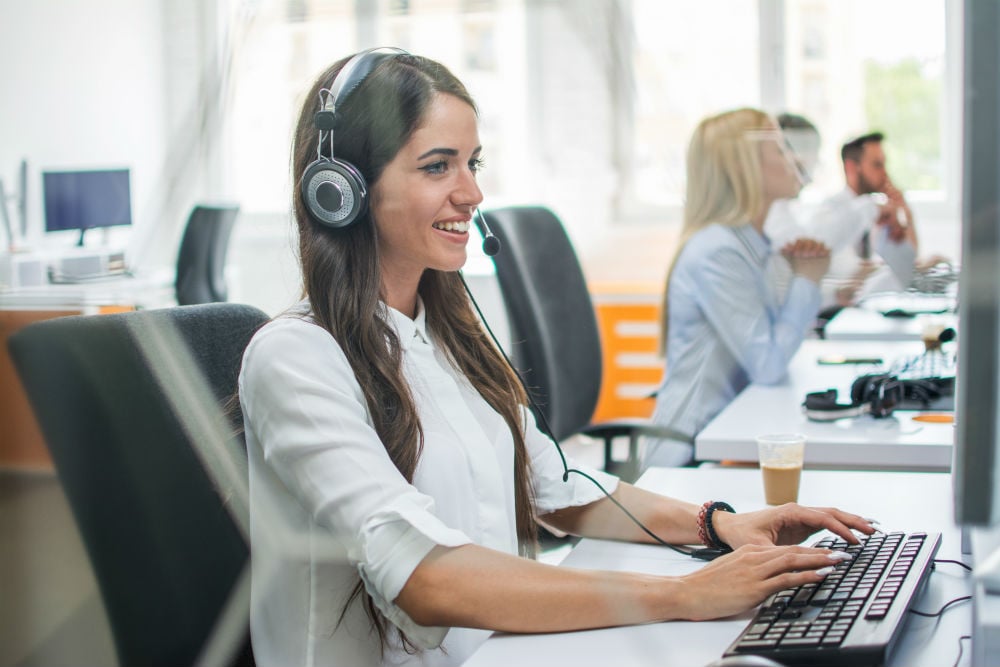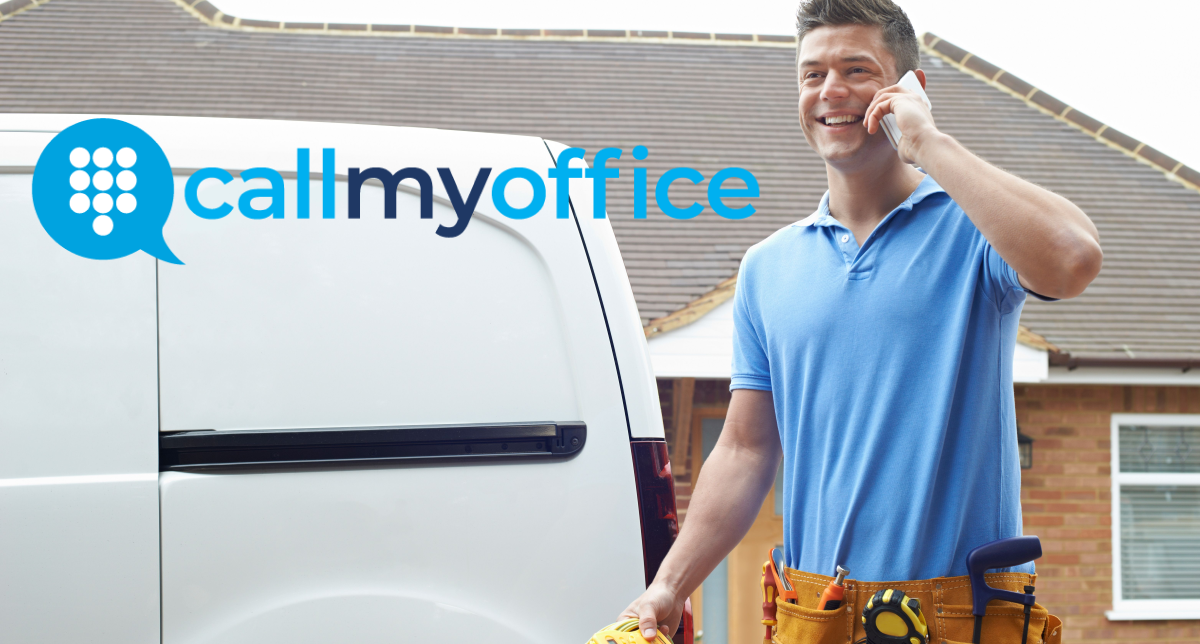All Categories
Featured
Table of Contents
- – Who Is The Best What Is An Answering Service? M...
- – What The Best How Does An Answering Service Wo...
- – What Is The Best Telephone Answering Service -...
- – What Is The Best What To Look For In A Phone ...
- – What Is The Best What Are Business Call Answe...
- – Which Is The Best Telephone Answering Servic...
Who Is The Best What Is An Answering Service? Manufacturer
This device and its successors were developed by Sava Jacobson, an electrical engineer with a personal consulting service. While early voice mail utilized magnetic tape technology, most modern equipment utilizes strong state memory storage; some devices utilize a mix of both, with a solid-state circuit for the outgoing message and a cassette for the incoming messages.
"toll saving" listed below) (phone answering service). This works if the owner is evaluating calls and does not wish to speak with all callers. In any case after going, the calling celebration needs to be informed about the call having actually been responded to (for the most part this starts the charging), either by some remark of the operator, or by some greeting message of the little bit, or dealt with to non-human callers (e.
This holds especially for the TADs with digitally kept welcoming messages or for earlier devices (prior to the rise of microcassettes) with a special limitless loop tape, separate from a 2nd cassette, devoted to recording. There have actually been answer-only gadgets with no recording abilities, where the welcoming message had to inform callers of a state of existing unattainability, or e (local phone answering service).
What The Best How Does An Answering Service Work? Brand To Buy

about accessibility hours. In recording Littles the greeting usually includes an invitation to leave a message "after the beep". A voice mail that uses a microcassette to tape-record messages On a dual-cassette answerphone, there is an outgoing cassette, which after the specified number of rings plays a pre-recorded message to the caller.

Single-cassette voice mail include the outgoing message at the start of the tape and incoming messages on the staying area. They initially play the statement, then fast-forward to the next readily available space for recording, then tape-record the caller's message. If there are many previous messages, fast-forwarding through them can cause a substantial hold-up.
This beep is typically referred to in the greeting message, requesting that the caller leave a message "after the beep". Littles with digital storage for the tape-recorded messages do not show this hold-up, obviously. A TAD might offer a push-button control facility, where the answerphone owner can call the home number and, by getting in a code on the remote telephone's keypad, can listen to recorded messages, or delete them, even when away from house.
What Is The Best Telephone Answering Service - Answer My Phone?

Therefore the maker increases the variety of rings after which it responds to the call (generally by two, leading to 4 rings), if no unread messages are currently kept, however responses after the set variety of rings (generally 2) if there are unread messages. This allows the owner to learn whether there are messages waiting; if there are none, the owner can hang up the phone on the, e.
Some machines likewise permit themselves to be from another location activated, if they have actually been turned off, by calling and letting the phone ring a particular big number of times (typically 10-15). Some provider abandon calls already after a smaller sized number of rings, making remote activation difficult. In the early days of TADs a special transmitter for DTMF tones (dual-tone multi-frequency signalling) was regionally required for push-button control, given that the previously utilized pulse dialling is not apt to convey appropriate signalling along an active connection, and the dual-tone multi-frequency signalling was carried out step-by-step.
Any incoming call is not identifiable with respect to these residential or commercial properties in advance of going "off hook" by the terminal equipment. So after going off hook the calls must be switched to proper devices and just the voice-type is immediately accessible to a human, however possibly, however need to be routed to a TAD (e.
What Is The Best What To Look For In A Phone Answering Service For Your ... To Buy Right Now?
What if I told you that you do not need to actually get your gadget when responding to a consumer call? Another person will. So practical, right? Answering phone calls doesn't require someone to be on the other end of the line. Efficient automated phone systems can do the trick just as efficiently as a live agent and in some cases even much better.
An automatic answering service or interactive voice action system is a phone system that communicates with callers without a live individual on the line - phone call answering. When companies utilize this technology, clients can get the response to a question about your service just by utilizing interactions established on a pre-programmed call circulation.
Although live operators upgrade the customer care experience, numerous calls do not need human interaction. A basic documented message or instructions on how a client can retrieve a piece of details typically solves a caller's immediate need - phone call answering. Automated answering services are a basic and effective method to direct incoming calls to the best individual.
What Is The Best What Are Business Call Answering Services? - Chalkboard You Can Buy
Notice that when you call a company, either for support or product questions, the first thing you will hear is a pre-recorded voice welcoming and a series of choices like press 1 for client service, press 2 for inquiries, and so on. The pre-recorded alternatives branch out to other options depending upon the consumer's choice.
The phone tree system helps direct callers to the ideal person or department using the keypad on a mobile phone. In some instances, callers can utilize their voices. It deserves noting that auto-attendant options aren't restricted to the ten numbers on a phone's keypad. When the caller has actually selected their very first alternative, you can design a multi-level auto-attendant that utilizes sub-menus to direct the caller to the ideal type of support.
The caller does not need to communicate with an individual if the auto-attendant phone system can handle their concern. The automated service can path callers to an employee if they reach a "dead end" and need support from a live representative. It is pricey to work with an operator or executive assistant.
Which Is The Best Telephone Answering Service - Dexcomm - U.s. Based
Automated answering services, on the other hand, are significantly more economical and offer substantial cost savings at an average of $200-$420/month. Even if you do not have actually committed staff to handle call routing and management, an automated answering service improves efficiency by enabling your group to focus on their strengths so they can more effectively spend their time on the phone.
A sales lead routed to client service is a lost shot. If a client who has item concerns reaches the incorrect department or receives insufficient responses from well-meaning workers who are less trained to manage a particular type of concern, it can be a cause of aggravation and frustration. An automatic answering system can reduce the variety of misrouted calls, consequently assisting your employees make better use of their phone time while freeing up time in their calendar for other jobs.
With Automated Answering Systems, you can create a tailored experience for both your personnel and your callers. Make a recording of your primary greeting, and merely upgrade it routinely to show what is going on in your organization. You can develop as many departments or menu choices as you desire.
Table of Contents
- – Who Is The Best What Is An Answering Service? M...
- – What The Best How Does An Answering Service Wo...
- – What Is The Best Telephone Answering Service -...
- – What Is The Best What To Look For In A Phone ...
- – What Is The Best What Are Business Call Answe...
- – Which Is The Best Telephone Answering Servic...
Latest Posts
Renowned Receptionist Service Near Me
Efficient Call Management Service
Dependable After Hours Answering Near Me – Australia
More
Latest Posts
Renowned Receptionist Service Near Me
Efficient Call Management Service
Dependable After Hours Answering Near Me – Australia